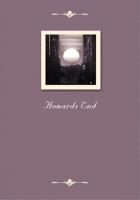When Albert Gallatin Lander (he was named for an early Secretary of the Treasury as a tribute to the statesman's financial policy) went out of business, his wife began to go out of health; and it became the most serious affair of his declining years to provide for her invalid fancies.
He would have liked to buy a place in the Boston suburbs (he preferred one of the Newtons) where they could both have had something to do, she inside of the house, and he outside; but she declared that what they both needed was a good long rest, with ******* from care and trouble of every kind. She broke up their establishment in Boston, and stored their furniture, and she would have made him sell the ****** old house in which they had always lived, on an unfashionable up-and-down-hill street of the West End, if he had not taken one of his stubborn stands, and let it for a term of years without consulting her. But she had her way about their own movements, and they began that life of hotels, which they had now lived so long that she believed any other impossible. Its luxury and idleness had told upon each of them with diverse effect.
They had both entered upon it in much the same corporal figure, but she had constantly grown in flesh, while he had dwindled away until he was not much more than half the weight of his prime. Their digestion was alike impaired by their joint life, but as they took the same medicines Mrs. Lander was baffled to account for the varying result. She was sure that all the anxiety came upon her, and that logically she was the one who ought to have wasted away. But she had before her the spectacle of a husband who, while he gave his entire attention to her health, did not audibly or visibly worry about it, and yet had lost weight in such measure that upon trying on a pair of his old trousers taken out of storage with some clothes of her own, he found it impossible to use the side pockets which the change in his figure carried so far to the rear when the garment was reduced at the waist. At the same time her own dresses of ten years earlier would not half meet round her; and one of the most corroding cares of a woman who had done everything a woman could to get rid of care, was what to do with those things which they could neither of them ever wear again. She talked the matter over with herself before her husband, till he took the desperate measure of sending them back to storage; and they had been left there in the spring when the Landers came away for the summer.
They always spent the later spring months at a hotel in the suburbs of Boston, where they arrived in May from a fortnight in a hotel at New York, on their way up from hotels in Washington, Ashville, Aiken and St. Augustine. They passed the summer months in the mountains, and early in the autumn they went back to the hotel in the Boston suburbs, where Mrs. Lander considered it essential to make some sojourn before going to a Boston hotel for November and December, and getting ready to go down to Florida in January. She would not on any account have gone directly to the city from the mountains, for people who did that were sure to lose the good of their summer, and to feel the loss all the winter, if they did not actually come down with a fever.
She was by no means aware that she was a selfish or foolish person. She made Mr. Lander subscribe statedly to worthy objects in Boston, which she still regarded as home, because they had not dwelt any where else since they ceased to live there; and she took lavishly of tickets for all the charitable entertainments in the hotels where they stayed. Few if any guests at hotels enjoyed so much honor from porters, bell-boys, waiters, chambermaids and bootblacks as the Landers, for they gave richly in fees for every conceivable service which could be rendered them; they went out of their way to invent debts of gratitude to menials who had done nothing for them. He would make the boy who sold papers at the dining-room door keep the change, when he had been charged a profit of a hundred per cent. already; and she would let no driver who had plundered them according to the carriage tariff escape without something for himself.
A sense of their munificence penetrated the clerks and proprietors with a just esteem for guests who always wanted the best of everything, and questioned no bill for extras. Mrs. Lander, in fact, who ruled these expenditures, had no knowledge of the value of things, and made her husband pay whatever was asked. Yet when they lived under their own roof they had lived simply, and Lander had got his money in an old-fashioned business way, and not in some delirious speculation such as leaves a man reckless of money afterwards. He had been first of all a tailor, and then he had gone into boys' and youths' clothing in a small way, and finally he had mastered this business and come out at the top, with his hands full. He invested his money so prosperously that the income for two elderly people, who had no children, and only a few outlying relations on his side, was far beyond their wants, or even their whims.














